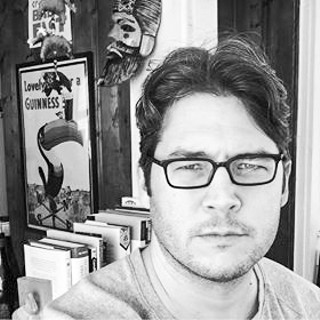IF YOU are a property rights advocate, Section 8-3024 of the Zoning Code of the City of Savannah is ugly.
If you’re an entrepreneur, Section 8-3024 could be crippling. That is, if you think 8-3024 means what the City of Savannah says it means.
Section 8-3024 of the Zoning Code of the City of Savannah states:
If either a use or class of uses is not specifically indicated as being permitted in a district, either as a matter of right or on the approval of the board of appeals, then such use or class of uses shall be prohibited in such district.
That’s it – one sentence. The actual purpose of Section 8-3024 is obvious to anyone that goes on to read Section 8-3025, “Regulation as to uses.”
Section 8-3025 is 91 pages long. It contains two indexes listing defined uses – one for Conservation & Residential (C&R) districts, and one for Business & Industrial (B&I) districts.
These indexes are followed by very long tables displaying what defined uses are allowed in what zoning districts, and under what conditions. Section 8-3024 simply lets the reader know that if a defined use is not specifically indicated as being permitted in a zoning district in the tables in 8-3025, either as a matter of right, or upon the approval of the Zoning Board of Appeals (ZBA), then that defined use is not permitted in that zoning district. Simple.
The City, however, takes a much more expansive view of Section 8-3024. The City believes it grants them the power to prohibit even uses “undefined” in the Code.
But what makes a use “undefined”? For that matter, what makes something a “use”?
Is the birdhouse in your yard a use? “Accommodation for transient avians” is not found in the Code – you could be cited under 8-3024 if the City has its way.
Truly, there is literally no end of “undefined uses” that under draconian scrutiny (and moderate creativity) could be the basis for citation by the Zoning Department in this regime.
Attorney Patrick Connell expressed the problem thusly on behalf of Michael Trulson in his Recorders Court case:
“Under the City’s proposed regime, citizens would be left to guess when they had violated the Ordinance by inadvertently stumbling into a land use that the City now says is actually a prohibited ‘undefined use,’ based on some previously unarticulated circumstances that the City now maintains differentiates said undefined use from all defined uses,” Connell wrote to the court.
“For example, under the City’s urged interpretation of the Ordinance, nothing would stop the City from arguing that the use of a single-family property for children’s sleepovers is actually prohibited, because such use is an undefined use that differs from the ‘One-family dwelling, Detached’ use that is designated as Use 1(a) under the Ordinance. A landowner could never be clear on whether he was violating the Ordinance under the interpretation of 8-3024 urged by the City,” he concludes.
Would the City use 8-3024 to harass people having children’s sleepovers, or people with birdhouses in their front lawn, or any number of things that could be considered “undefined uses” according to their interpretation? This is unknown, but it could happen.
Also, any entrepreneur with an even slightly new business endeavor, or selling a new or simply altered product would have to assume that his or her activities were prohibited until the City got around to defining new uses within the zoning code.
Thankfully the laws of the State of Georgia protect us from the City’s interpretation of 8-3024. As established in Cherokee County v. Martin, a 2002 decision from the Ga. Court of Appeals:
Since zoning ordinances restrict an owner’s right to freely use his property, they are in derogation of common law. Thus, they must be strictly construed in favor of the property owner and never extended beyond their plain and explicit terms. Any restrictions must be clearly established, and ambiguities in the language of zoning ordinances should be resolved in the favor of free use of property.
This is why Judge Stokes dismissed the City’s case against Michael Trulson in Recorders Court.
First, he was not guilty of operating a defined and prohibited use known as a “Bed and Breakfast Guest Unit” because he did not serve breakfast, as required in the definition of that use.
Second, he was not guilty of operating an illegal “undefined use,” because the judge agreed that state law says you cannot be guilty of any such thing, as articulated in the Cherokee County case.
According to the Court’s Order, “Section 8-3024 is not a blanket prohibition on the use of property for any and all uses that are not expressly defined by the City, because such an interpretation of Section 8-3024 would violate well-settled Georgia law that requires any and all restrictions on the use of property to be clearly established...”
How did the City respond? The next day a text amendment was voted on at Metropolitan Planning Commission (MPC), for the purpose of clarifying and extending the prohibition on homeowners renting out extra bedrooms for short-term stays.
This language was then accepted at the next meeting of City Council.
So when forced, the City displayed it can act quickly when it wishes to take away property rights to prohibit a use, rather than rely on 8-3024.
Nevertheless, the City decided it will defend its interpretation of 8-3024 as a blanket prohibition by appealing the decision in the Trulson case to Superior Court.
I must now steal a friend’s pithy paraphrasing of the City’s reason for their appeal: “We’ve been doing it all wrong for awhile now, so please don’t make us change it, because that would be hard.”
Whatever your views on the Short-Term Rental Wars that have been going on in Savannah the past few years, I would hope that you see the problem with the City’s preferred interpretation of Section 8-3024, and the implications it has for all homeowners and businesses outside of the short-term rental world.
I do not believe it to be hyperbole to label this sort of “prohibition by whim” as tyrannical. We’re lucky to have state case law that protects us, and the state Zoning Procedures Law (ZPL) delineating minimum required due process for zoning actions.
Let’s see that our government stays within boundaries set by the state and takes no zoning actions without due process.

























